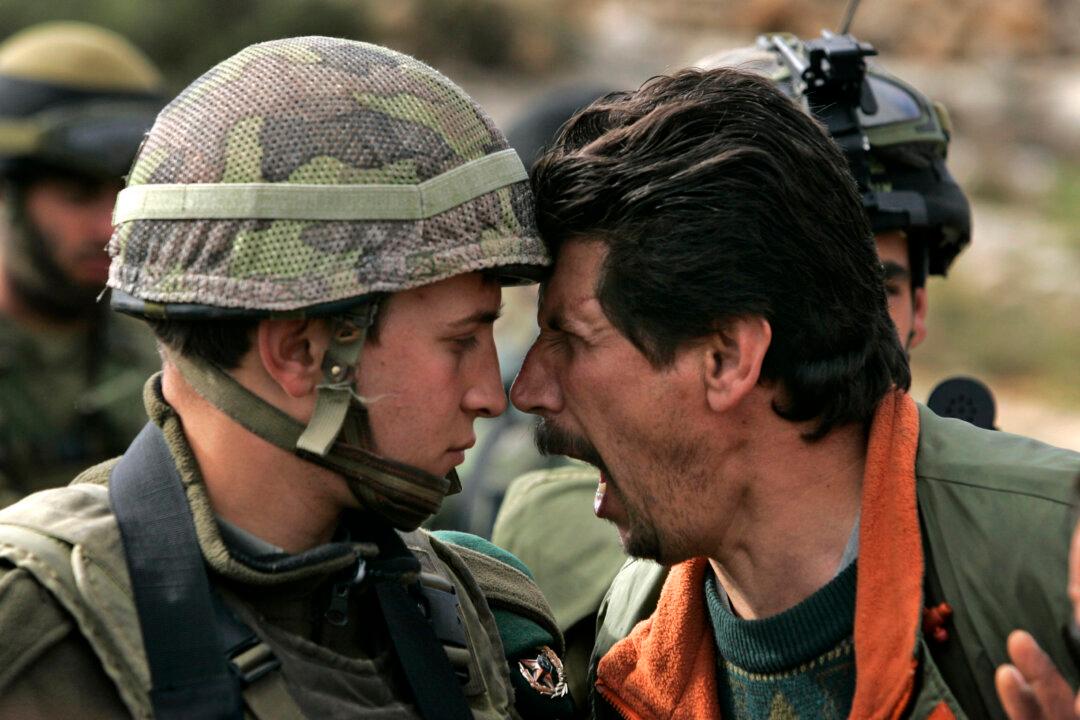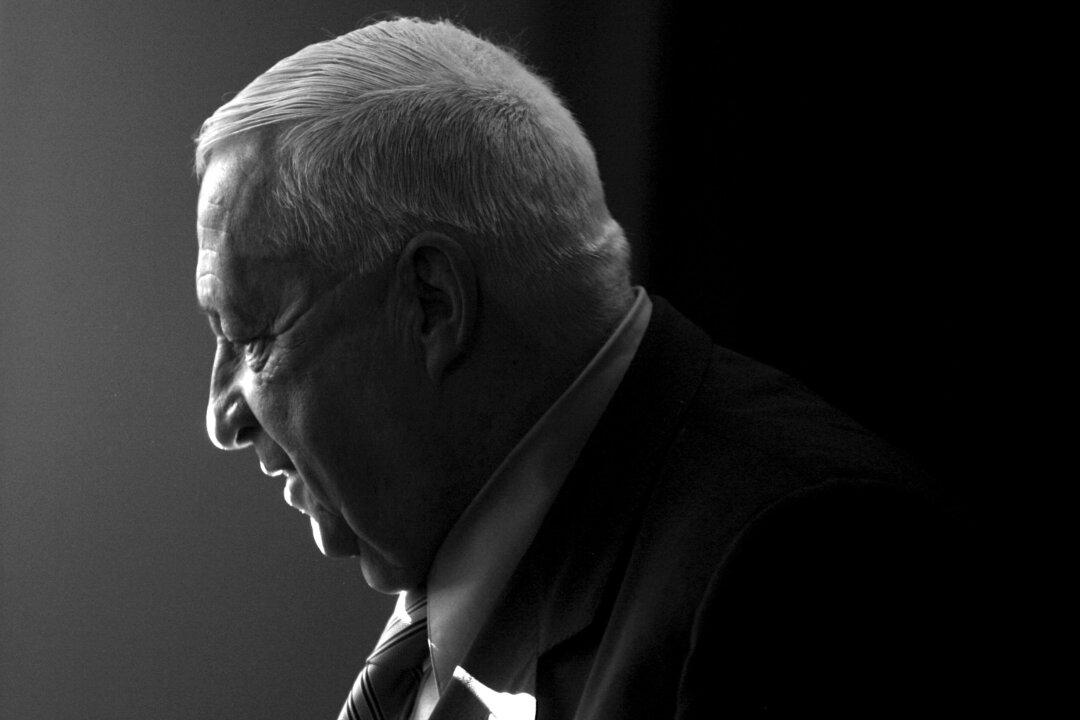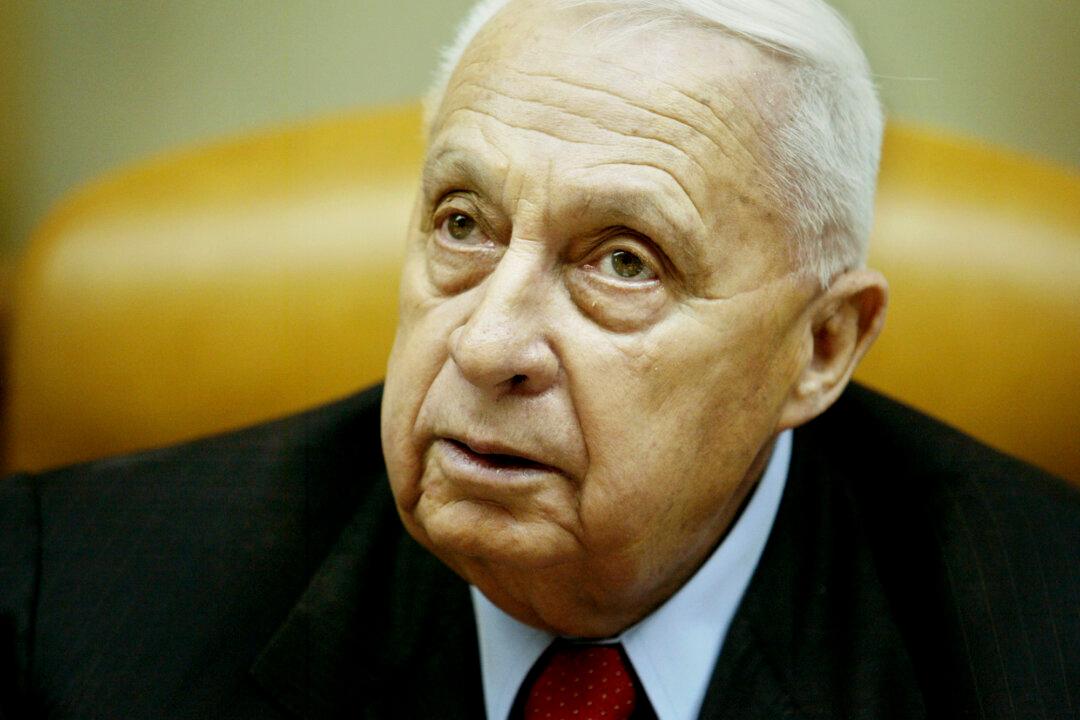JERUSALEM—U.S. Secretary of State John Kerry has announced that the peace negotiations between Israel and the Palestinians are starting. On Monday, Tzipi Livni, minister of justice and Hatnua Party leader, is meeting with Palestinian negotiator Saeb Erekat in Washington, D.C.
Formally, the two-state solution was accepted by Israeli Prime Minister Benjamin Netanyahu as well as by Palestinian Authority President Mahmoud Abbas. The question is, will Monday’s negotiations result in a concrete agreement?
The U.S. Department of State released a statement explaining: “The meetings in Washington will mark the beginning of these talks. They will serve as an opportunity to develop a procedural work plan for how the parties can proceed with the negotiations in the coming months.”
The statement may aim to lower expectations, which were not high to begin with.
In a speech at a National Defense College graduation ceremony in Jerusalem on July 24, Netanyahu spoke mostly of a need for Israeli security: “Peace is made only between the strong. We will not entrust our national security to others. Israel will always defend itself, by itself, against any threat, near or far.”
The controversy in Israel over the revival of the peace process has been expressed in recent opinion articles.
Nidal Foqaha and Gadi Baltiansky, Israeli directors of the Geneva Initiative, wrote an editorial titled “Peace Deal—Victory for Both Sides” published by the Israeli Internet publication Ynet on July 26. The Geneva Initiative agreement is the result of nonformal negotiations between Israeli and Palestinians that took place in Geneva in 2003.
They wrote, “Theoretically, the existing conditions—recognizing the future agreement and understanding the danger of its alternatives—should lead to successful negotiations.”
As a reply to Foqaha’s and Baltiansky’s opinion, Noah Klieger, a Ynet Israeli journalist and survivor of the Holocaust, stated in an article published on Ynet, “Renewed peace negotiations with Palestinians will end in nothing, just like they did before.”
Klieger wondered what would make the Palestinians compromise now, when they have a tail wind carrying them following the recently enacted European Union (EU) guidelines denying EU funding to Israeli entities operating beyond the green line (1967 borders). The guidelines signal an EU stance against Israeli settlements beyond these borders.
According to a poll by Ha'aretzl, an Israeli center-left newspaper, 55 percent of Israelis are inclined to support a peace agreement in a referendum; 25 percent are inclined to oppose a peace agreement with the Palestinians.
On the Palestinian side, Dr. Khalil Shikaki of the Palestinian Center for Policy and Survey Research, shared the results of a recent poll, which found that the majority of Palestinians—more than 60 percent—are ready to compromise and live peacefully with Israel in exchange for a Palestinian state based on 1967 borders with East Jerusalem as its capital.
In the turmoil that arose again in Israel and in Palestine, between those who support the two-state solution and those who oppose it, many political players are not optimistic.
Israel has withdrawn from Sinai and Gaza in the past, but the settlements there were small and relatively few people had to be evacuated. The partition of Jerusalem is far from being resolved by a consensus in Israel. Israel has not recognized Palestinian refugees as being, at least partially, its responsibility.




